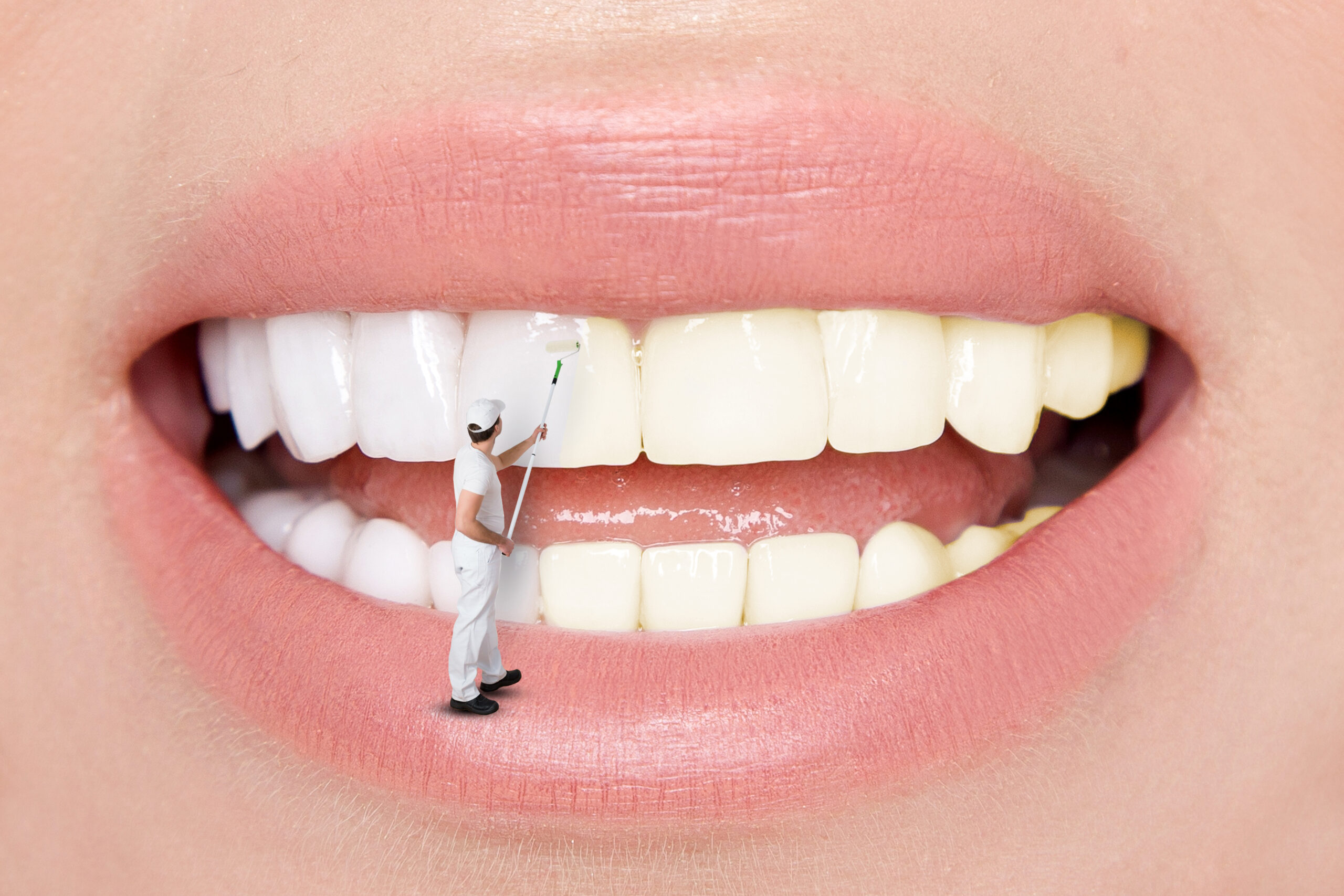Achieving a bright, confident smile is a common goal for many individuals seeking to enhance their appearance and boost self-confidence. With advancements in cosmetic dentistry, there are various options available to achieve a whiter, more radiant smile. Two popular treatments that often come to mind are dental veneers and teeth whitening.
In this blog post, we delve intothe differences between veneers and whitening, along with their respective benefits and drawbacks, to help you make an informed decision for your smile transformation journey.
Understanding Dental Veneers and Teeth Whitening
Dental Veneers:
Veneers are thin, custom-made shells typically made of porcelain or composite resin. They are bonded to the front surface of teeth to improve their appearance by altering shape, size, colour, or alignment.
Teeth Whitening:
Teeth whitening, also known as bleaching, is a non-invasive procedure that lightens the natural colour of teeth. It involves the application of whitening agents, usually hydrogen peroxide or carbamide peroxide, to remove stains and discolouration.
Differences Between Veneers and Whitening
1. Purpose and Scope
- Veneers
Veneers are versatile and can address a wide range of cosmetic concerns, including severe discolouration, chipped or cracked teeth, gaps between teeth, and misaligned teeth.
- Whitening
Whitening primarily targets surface stains caused by aging, certain foods and beverages, tobacco use, and other external factors. It may not be effective for intrinsic stains or discolouration caused by factors like tooth trauma or medication use.
2. Procedure
- Veneers
Getting veneers typically requires multiple visits to the dentist. The process involves consultation, tooth preparation, impressions, fabrication of veneers in a dental lab, and finally, bonding the veneers to the teeth.
- Whitening
Professional whitening can be done in-office or at home using custom-made trays provided by the dentist. In-office treatments usually involve a single visit, while at-home whitening may take several days or weeks to achieve desired results.
3. Durability
- Veneers
Porcelain veneers are highly durable and resistant to staining, making them a long-term solution for enhancing the appearance of teeth. With proper care and maintenance, veneers can last 10-15 years or longer.
- Whitening
The longevity of whitening results varies depending on factors such as oral hygiene practices, dietary habits, and lifestyle choices. Touch-up treatments may be needed every few months to maintain optimal results.
4. Cost
- Veneers
Veneers tend to be more costly than whitening due to the customisation and fabrication process involved. However, they offer comprehensive cosmetic improvement and long-lasting results.
- Whitening
Professional whitening is generally more affordable than veneers, making it a popular choice for individuals seeking a budget-friendly option for enhancing their smile.
Pros and Cons of Veneers and Whitening
Veneer Pros
– Comprehensive cosmetic enhancement
– Durable and stain-resistant
– Can address multiple aesthetic concerns
Veneer Cons
– Irreversible process
– Requires tooth preparation
– Higher upfront cost
Whitening Pros
– Non-invasive procedure
– Cost-effective option
– Can achieve noticeable results
Whitening Cons
– Limited to surface stains
– Results may vary
– Potential for tooth sensitivity
Dental Veneers or Teeth Whitening?
Whether you opt for dental veneers or teeth whitening, both treatments offer effective solutions for achieving a brighter, more attractive smile.
Consider factors such as your specific cosmetic goals, budget, and oral health when making your decision. Consulting with a qualified dentist is essential to determine the most suitable option for your unique needs and preferences.
At Proactive Dental, we are committed to helping you achieve the smile of your dreams through personalised treatment plans and expert care.
Schedule a consultation today to explore your options and take the first step toward a brighter, more confident smile!

